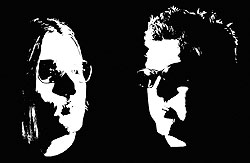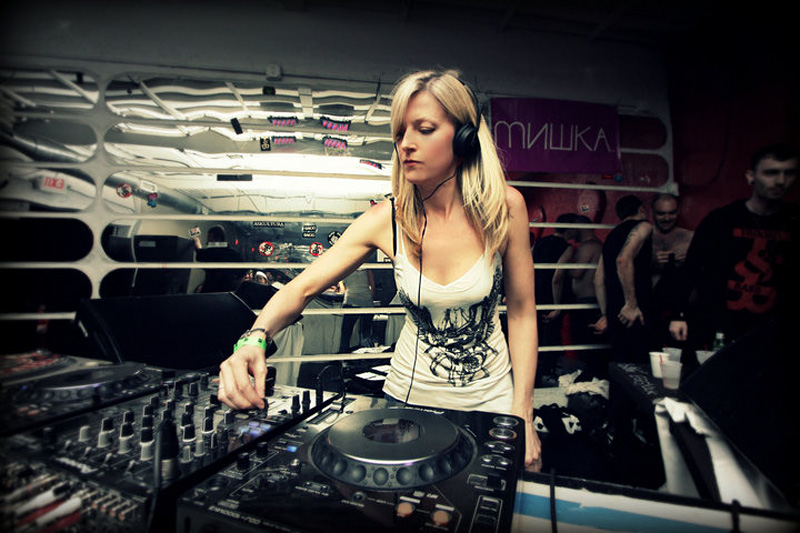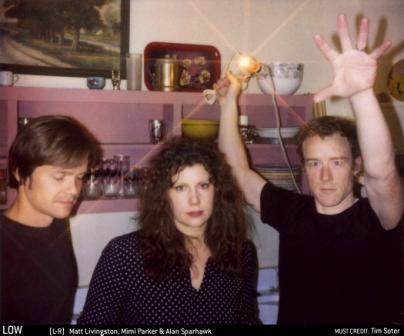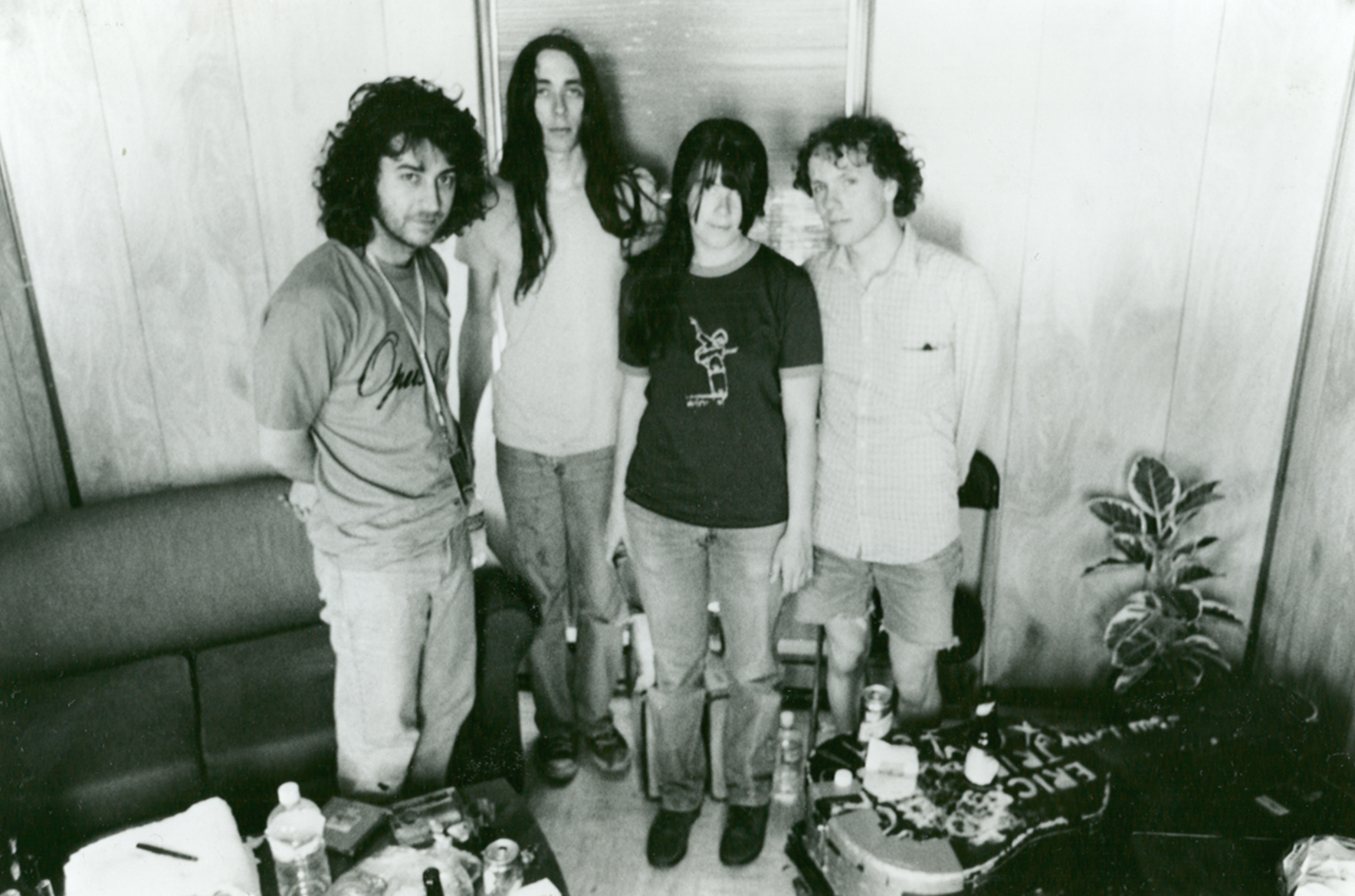Twenty-five years ago last week, to the annoying yet appropriate tune of the Buggles’ “Video Killed the Radio Star,” a modest little channel called MTV appeared on cable. This minor event never really amounted to much—psych! MTV, like, changed everything—even if you had to go to someone else’s house to watch it on satellite.
“Oh, yeah, those were the rich people in town,” says Aaron Behrens, frontman for Austin-based noisemakers Ghostland Observatory. “There were, like, huge, concrete [-mounted] dishes in the backyard.”
Like Behrens, Thomas Turner, who mans the drums, synths, and production in Ghostland, also grew up in a small Texas town where musical variety was hard to come by. Roughly 10 years later, the two met in Austin and began working on what became 2005’s delete.delete.i.eat.meat. and Paparazzi Lightning, released on Turner’s Trashy Moped label within a year of each other. Each hits your pleasure receptors as suddenly as a Southern thunderstorm can blacken the sky, with a one-two punch of pop swagger, courtesy of the tight-pants-wearing Behrens and Turner’s electronic oomph.
The albums are manna for the funk-starved indie public still anticipating the Rapture’s sophomore disc, and are novel enough to catch the fawning affections of KEXP-FM (90.3) like a Clap Your Hands Say Yeah B-side. Matter of fact, it was a show with that very band last summer in New York City that propelled Ghostland into the public consciousness. “Movable Hype,” organized by the Gothamist blog, packaged the oil-and-water groups together, and blew some bloggers’ minds in the party-rocking process. Now two years after their inception, Ghostland occupy that precious space between “Who?” and Pitchfork (which hasn’t discovered them yet) oblivion.
I mention MTV because it’s now that the second generation of kids to grow up in its glow—like Ghostland and your journalist, who were in high school in the ’90s—are coming into their own as artists. More interesting than how the two men met (through an Austin Chronicle ad) or what their songwriting process is like (they demo almost everything live, then recapture that energy in the studio) is how they emerged from the musical hodgepodge of their youth, and how they blend those tastes into art. As part of the first generation of MySpace bands, who summarily give the now-impenetrable mainstream media the finger with their own career mastery, Ghostland’s publicity is done in-house, and word of mouth has been their biggest asset.
Usually, the word is along the lines of “Whoa, what?” speculates Turner of the duo’s show, where Behrens sings and struts to frantic garage riffs (“Ghetto Magnet”) and thumping dance-punk beats (“Sad Sad City”) as often as vocoders (“Vibrate”). Much of this is Turner’s doing. After monumentally hearing Daft Punk’s “Da Funk” at a rave and promoting raves himself for a few years, he approaches composition with an appreciation of everyone from disco pioneer Giorgio Moroder to minimal label Kompakt, whose releases he plays for his 1-year-old son. In N.Y.C., he tried to cajole Behrens into seeing house legend Green Velvet (who’s headlining this year’s Decibel Festival), to no avail. “He likes his stuff and I like mine, and we come together in some weird way,” says Turner.
“When I moved to Austin, I was in a heavy metal band. I hadn’t done anything like Ghostland,” Behrens says. “Both of us stepped into a realm we’ve never been in before.” He brings a powerful voice, influenced by the transcendent vocal qualities of undervalued rockers like Glassjaw’s Daryl Palumbo and the Deftones’ Chino Moreno. Behrens also has moves, serious ones inspired by charismatic showmen like Prince and Freddie Mercury. Not to mention his experiences dancing the MC Hammer and Roger Rabbit in a hip-hop troupe as a teenager. The Kid ‘N Play kick step? “That’s good stuff right there. Me and my buddy used to do that at the Valentine’s dances,” he laughs.
Where dancing is concerned, he’s said that a goal is getting the audience members to lose their egos. “That’s almost a reference to myself,” he says. “I’m nothing like that offstage. I say that to let go and cut through that shit—to remind them and myself to not let your brain take control.”
Turner echoes his friend’s sentiment, showing that no matter how disparate their interests, they’re definitely on the same page. “When we started really trying to create our own sound, we made this deal that as long as it’s bangin’, as long as we’re both into it, it’s all good,” says Turner. “Whatever tools we have to use, let’s use them and just freakin’ rock out.”








